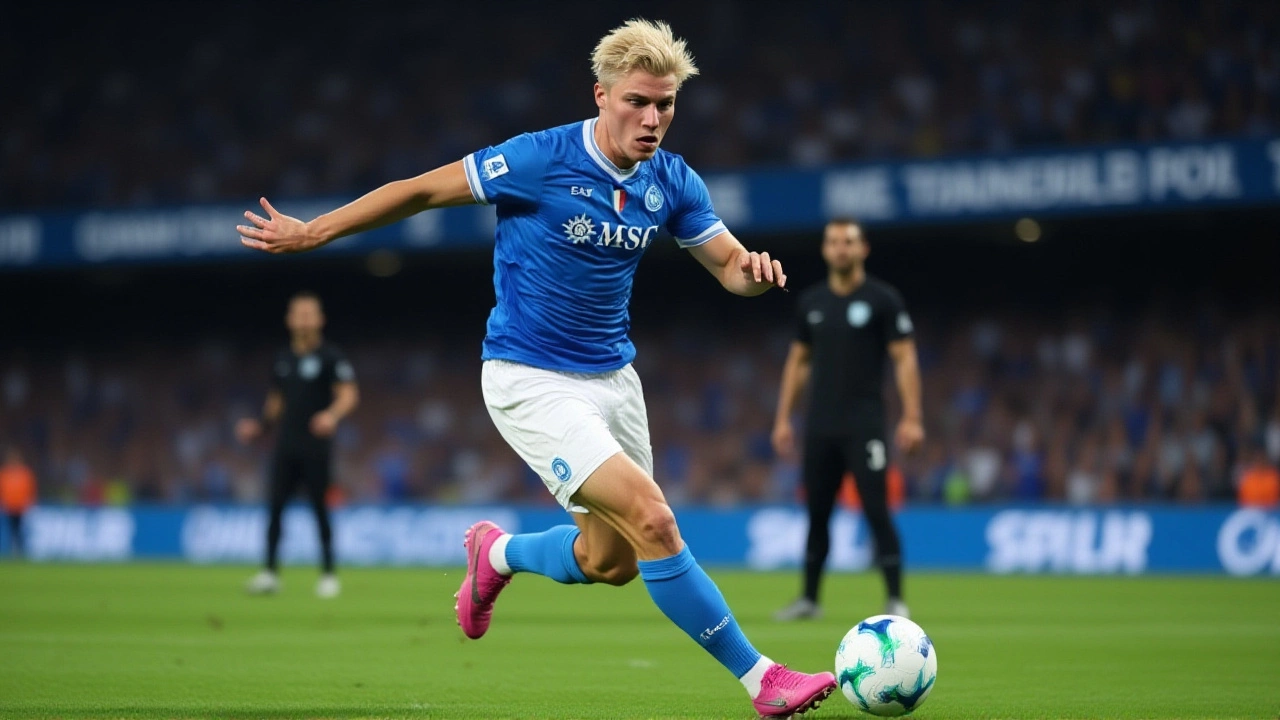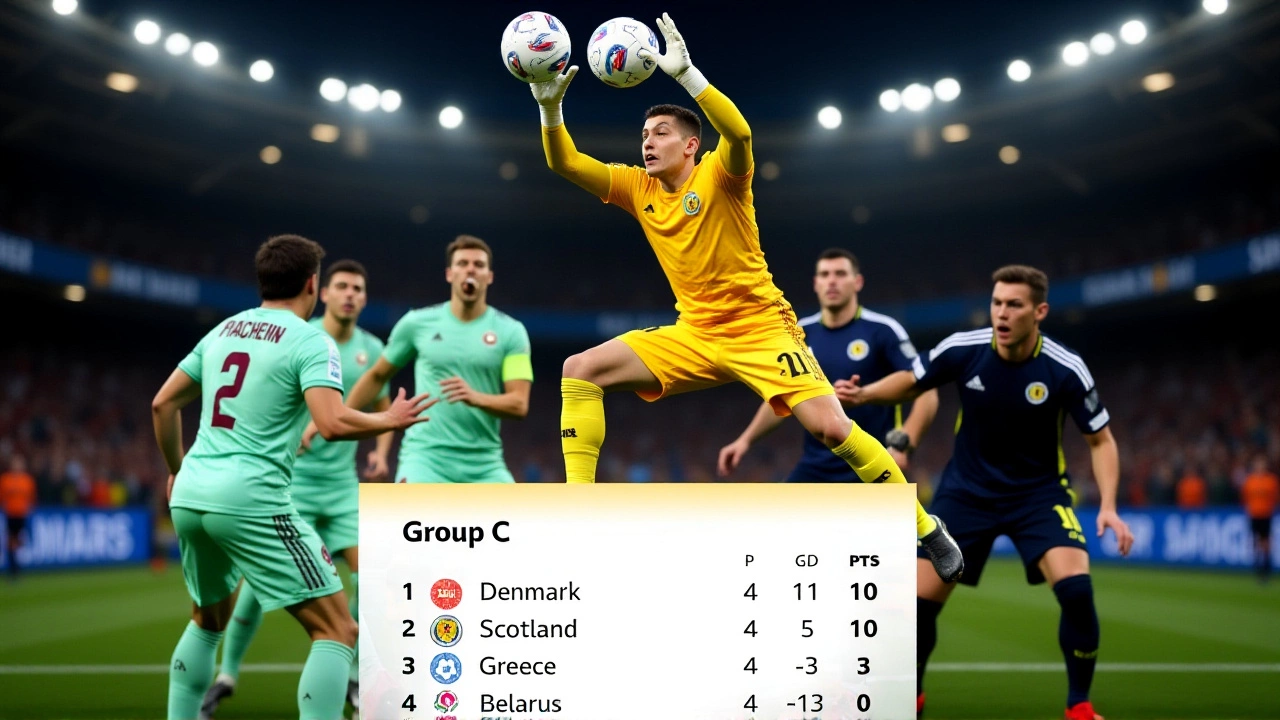One match. One chance. For Scotland, it’s not just another qualifier—it’s a shot at ending a 28-year wait to return to the FIFA World Cup. On Monday, November 18, 2025, the final UEFA Group C qualifier Hampden Park in Glasgow will host a game that could rewrite a generation of Scottish football history. A win against Denmark means automatic qualification for the 2026 FIFA World Cup Canada, Mexico, and the United States. A draw or loss? Then the long, nerve-wracking path of the March 2026 play-offs begins. No one wants that. Not after this long.
What’s at Stake: The 28-Year Wait
Scotland last played in a World Cup in 1998. That’s right—28 years. Not since the days of Alan Shearer’s England, Zinedine Zidane’s rise, and the first World Cup broadcast in HD. Since then, they’ve come agonizingly close: heartbreak against Croatia in 2002, a last-minute goal in 2010, and a playoff loss to Ukraine in 2022. This time, the team doesn’t just want to get close. They want to go through. And they’re one win away from doing it.
Head coach Steve Clarke has built something steady. Not flashy, but resilient. Ten points from five matches—three wins, one draw, one loss—has them sitting second in UEFA Group C, just one point behind Denmark. Their goal difference of +4 is the best among the group’s non-leaders. They’ve scored nine goals, conceded five. Solid. But it’s not enough unless they beat Denmark.
The Road to November 18: A Season of Near Misses
The group stage began in September 2025 with a 0-0 stalemate in Copenhagen. A point, but not the one Scotland craved. Denmark responded with a 2-2 draw against Belarus on October 9, a result that kept them top but exposed cracks. Belarus, a team many expected to be easy fodder, held Denmark to a draw, and suddenly the pressure shifted.
Scotland’s wins came against Belarus (2-1), Greece (3-1), and again against Belarus (2-0). Their lone loss? A 1-0 defeat to Greece in Athens—a match where they dominated possession but couldn’t convert. The suspension of key players Ryan Christie and Lewis Ferguson after the Denmark draw hampered their October 12 clash with Belarus. Meanwhile, Denmark lost midfielder Pierre-Emile Højbjerg to suspension for their game against Greece. These absences changed dynamics. They’re now both back, fully fit, and ready.
“We’ve been here before,” said Clarke after training last week. “We know what it feels like to be one game away. But this team? This group? They’ve got something different. They’re not just hoping. They’re believing.”
How the Qualification System Works
For the first time, the 2026 FIFA World Cup will feature 48 teams. UEFA has 13 automatic spots. The 12 group winners qualify directly. The 12 runners-up enter the play-offs. But here’s the twist: the four best-ranked group winners from the 2024/25 UEFA Nations League who didn’t finish in the top two of their qualifiers also join the play-offs. That means 16 teams total. Four paths. Four single-leg semi-finals, then four single-leg finals between March 26–31, 2026. Only four winners make it.
Scotland has already secured a play-off spot. That’s guaranteed. But automatic qualification? That’s the dream. No extra games. No pressure of a one-off knockout. Just a direct ticket to the group stage.
Why This Match Matters More Than Ever
The emotional weight is heavy. Fans have waited longer than most players have been alive. A 16-year-old in Glasgow today was born in 2009—after Scotland’s last World Cup. The stadium will be packed. The streets will be quiet before kickoff. The whole country will stop.
It’s not just about football. It’s about identity. About pride. About proving that a nation of 5.5 million can still compete with the best. Denmark, ranked 17th in the world, are no pushovers. They’ve got Christian Eriksen back in form, Joakim Mæhle on the wing, and a disciplined defense. But Scotland? They’ve got grit. They’ve got home advantage. And they’ve got nothing left to lose.
“We don’t need to be perfect,” said defender Grant Hanley after the last training session. “We just need to be Scotland. That’s enough.”

What Happens If They Lose?
If Scotland draws or loses on November 18, they’ll be in the play-offs. And that’s a minefield. They could face the Netherlands, Italy, or even a resurgent Portugal. No guarantees. No safety net. Just one game to survive. And history shows: play-off matches are brutal. One mistake. One bad bounce. And the dream slips away.
For context: in 2022, Scotland lost to Ukraine in the play-off final 2-1 after extra time. They had a penalty saved. They were two minutes from the World Cup. That pain still lingers.
Looking Ahead: The 2026 World Cup
If Scotland qualifies automatically, they’ll join a tournament unlike any before. Co-hosted by Canada, Mexico, and the United States, it’s the first 48-team World Cup. Group stages will be tighter. More teams. More chances. More magic. Scotland would likely be seeded in Pot 3 or 4, meaning a potential group with Brazil, Spain, or Germany. But they’ve played giants before—and won. Remember 1998? They beat Brazil 2-2 in the group stage. They’ve got the belief.
And if they don’t? The search for a new generation of talent will begin in earnest. The SFA has already invested in youth academies. But this team? This group? They’re the last of the old guard. And they’re asking for one last ride.
Frequently Asked Questions
What does Scotland need to qualify automatically for the 2026 World Cup?
Scotland must defeat Denmark in their final UEFA Group C qualifier on November 18, 2025, at Hampden Park. A win gives them 13 points and the group title, securing direct qualification. A draw or loss means they’ll enter the March 2026 play-offs, where they’d face one of 15 other runners-up or Nations League qualifiers in a single-match knockout.
Who are Scotland’s key players for this match?
Captain Andrew Robertson, who returned from injury in October, will anchor the defense and lead from the left-back position. Midfielder Billy Gilmour, now playing for Chelsea, is expected to control tempo. Up front, Lyndon Dykes and Calvin Stengs have combined for 7 goals in qualifying. Defender Scott McKenna, who missed the last match due to illness, is expected to return. The team’s resilience hinges on their ability to press high and convert set pieces—Scotland has scored 4 goals from corners or free kicks this campaign.
How does the 2026 World Cup play-off system work for UEFA teams?
The 12 group runners-up plus four best-ranked Nations League group winners not already qualified form 16 teams. They’re split into four paths of four teams each. Each path holds a single-leg semi-final (March 26–27) and a single-leg final (March 30–31). The four path winners qualify. Scotland, as a runner-up, will be seeded and avoid the strongest teams in their path—but still, one loss ends it.
Has Scotland ever qualified for a World Cup without the play-offs?
Yes. Scotland qualified automatically in 1974, 1978, 1982, and 1998. Their last automatic qualification was in 1998 under manager Craig Brown, when they finished top of a group that included the Netherlands and Poland. Since then, every qualification has come through the play-offs—except 2002, when they missed out entirely. This match is their first real shot at automatic qualification in 27 years.
What’s the history between Scotland and Denmark in World Cup qualifiers?
They’ve met five times in World Cup qualifying since 1980. Scotland has won two, Denmark two, and one draw. Their most recent meeting was the 0-0 stalemate in Copenhagen on September 5, 2025. Before that, Scotland beat Denmark 1-0 in 2001 in a qualifier for the 2002 World Cup. The rivalry is tight, physical, and rarely decisive. But this time, the stakes are historic.
